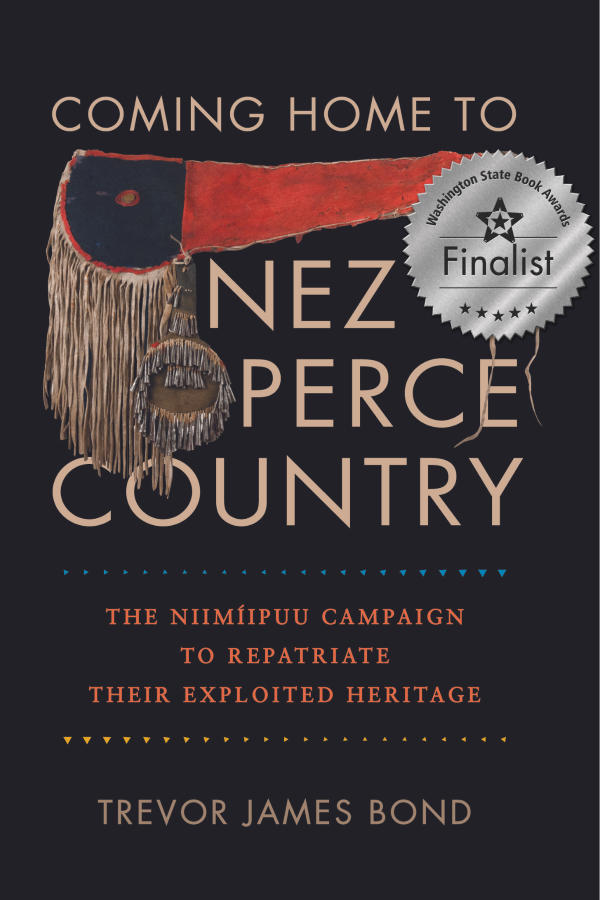Description
In 1847, two barrels of “Indian curiosities” were shipped by missionary Henry Spalding to Dr. Dudley Allen in Kinsman, Ohio. The items inside included exquisite Nez Perce shirts, dresses, baskets, and horse regalia—some decorated with porcupine quills and others with precious dentalium shells and rare elk teeth. Donated to Oberlin College in 1893 and transferred to the Ohio Historical Society (OHS) in 1942, the Spalding-Allen Collection languished in storage until Nez Perce National Historic Park curators rediscovered it in 1976. The OHS loaned most of the artifacts to the National Park Service, where they received conservation treatment and were displayed in climate-controlled cases. Josiah Pinkham, Nez Perce cultural specialist, notes that they embody “the earliest and greatest centralization of ethnographic objects for the Nez Perce people. You don’t have a collection of this size, this age, anywhere else in the world.”
Twelve years later, the OHS abruptly recalled the collection, but after public pressure and extended negotiations, agreed to sell the articles to the Nez Perce at their full appraised value of $608,100 and a six-month deadline. The tribe formed the Nez Perce Heritage Quest Alliance and mounted a brilliant grassroots fundraising campaign. One day before the deadline, they met their goal.
The author draws on interviews with Nez Perce experts and extensive archival research to tell the Spalding-Allen Collection story. He also examines the ethics of acquiring, bartering, owning, and selling Native cultural history, as Native American, First Nation, and Indigenous communities continue their efforts to restore their exploited cultural heritage from collectors and museums—pieces that are living, breathing, intimately connected to their home region, and inspirational for sustaining cultural traditions.
Dr. Trevor James Bond is the co-director of the Center for Digital Scholarship and Curation and the associate dean for digital initiatives and special collections at the Washington State University Libraries. He holds a Ph.D. in history.
“The author’s research is thorough in combining Nez Perce oral traditions, interviews with participants, and archival sources. Colorful illustrations enhance his solid narrative.”—Journal of American Culture
“A plethora of primary sources that remain generally outside the access of the general reader…bring Native voices and epistemologies to bear on practices that have until recently depended on histories written by white missionaries, curators, and scholars.”—Nicole Tonkovich, professor of literature at the University of California, San Diego, and author of Dividing the Reservation and The Allotment Plot
The Way Back Machine has captured the original fundraising pages from the 1990s.
Illustrations / notes / bibliography / index / 6″ x 9″ / 216 pages (2021)
ISBN 978-0-87422-405-4 Paperback






![Cover of Carry Forth the Stories [Expanded Edition]](https://s3.wp.wsu.edu/uploads/sites/1175/2023/11/Carry-Forth-the-Stories-2ndEd-RGB-600x900-1-300x450.jpg)



